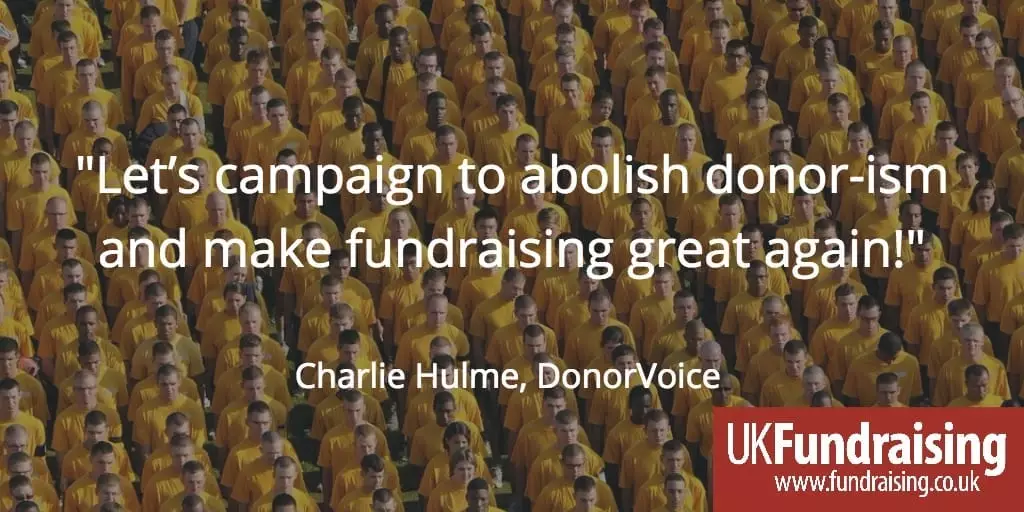Make fundraising great again!
I’d be shocked if there were any, or many, Trump supporters among this community of fundraising hipsters. But I wonder how many emulate him as fundraising practitioners.
What do I mean? Well, if I (as ‘the Donald’ is wont to do) were to let fly a barrage of sweeping generalisations about gender, what would you call me?
A sexist.
If I were to let fly a barrage of sweeping generalisations about race, what would you call me?
A racist.
And if I were to let fly a barrage of sweeping generalisations about donors, what would you call me?
A donor-ist!
Trump says he has “great respect for women”, but acts like he has anything but. Proponents and practitioners of donor ‘relationship’, ‘engagement’, ‘love’ etc., are guilty of a similar (though far less disgusting) contradiction.
They talk about what donors need (donors ‘need’ to be shown impact, they ‘need’ us to say thank you etc.). How donors should be addressed (we ‘should’ always use pronouns, ‘should’ always make donors the hero etc.). And how often (donors ‘want’ us to send more/less depending on our point of view).
Trouble is, no matter how well intentioned these statements are, they are based on pure assumption. We think/feel these things are true, but we don’t know, because we don’t truly know donors.
Sure we know when they gave (frequency), how much they give (value), how often (frequency), and their social label (demographics). But we don’t actually know why they give, or why they stop.
Without the ‘why’, statements like ‘donors need to be shown impact’, are obviously donor-phobic.
What if for one group of donors ‘impact’ means cure but for another it means treat? What if for one group of donors ‘impact’ means feed a child but for another it means lift them out of poverty? What if for one group of donors ‘impact’ means saving a specific species but for another it means saving them all?
What if one group of donors have a high emotional connection but a desire for a low behavioural involvement, whilst another have an equally high emotional connection coupled with a desire to get more deeply involved?
You get the point. And if you’re anything like the majority of fundraisers who want to do better but are increasingly frustrated that they can’t, this is why.
The reason we find it so hard to derive greater value from donors is, without knowing why they do what they do, we can’t deliver greater value to them.
Getting an empirical and applied answer on donor identity (why they give) and preference (what they’re looking for) is the single most simple and effective thing you can do to boost fundraising performance, value and retention.
So, the next time you’re at a conference, or reading a blog, and you hear someone pontificating about what donors want and need, stand up and proclaim “You Sir are a donor-ist!”
We’re better than that. And we can do so much better than this. Let’s campaign to abolish donor-ism and make fundraising great again!
Charlie Hulme is Managing Director at DonorVoice.
Advertisement





